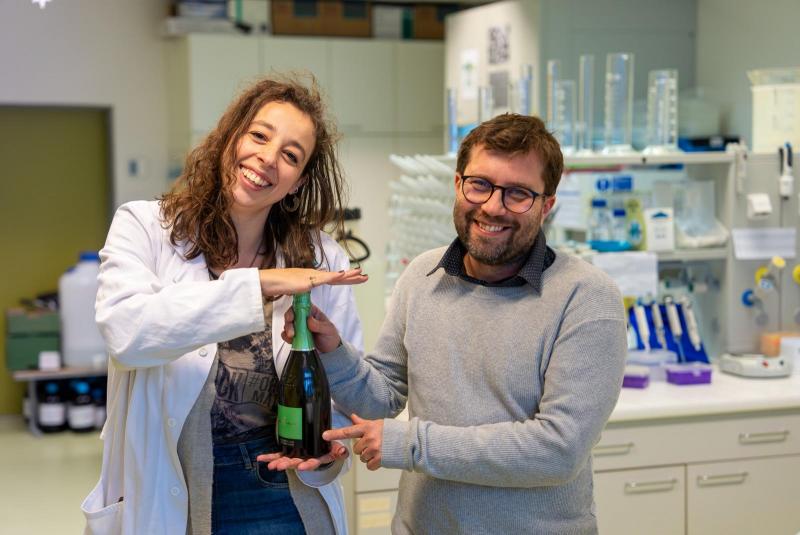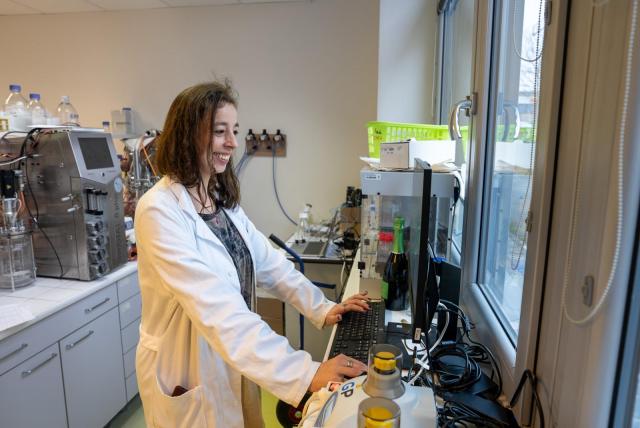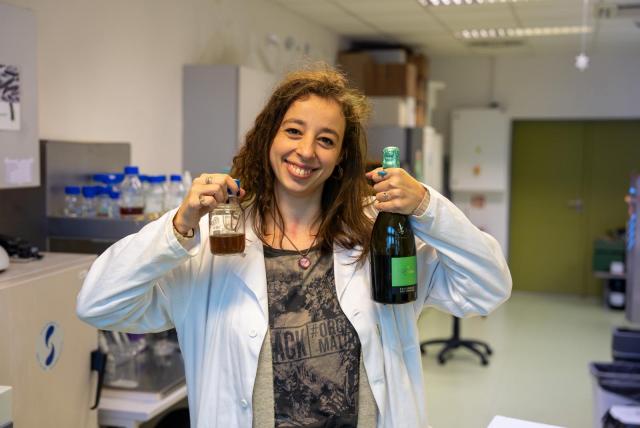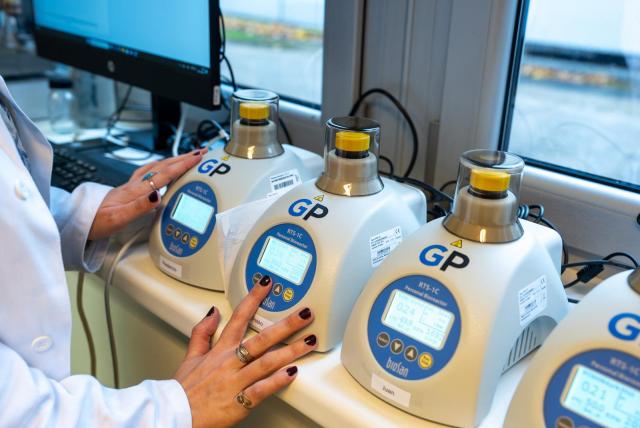From Prosecco to Bioplastics: An Italian Scientist’s Journey to Sustainable Innovation
Meet Viola Caminiti, an inspiring environmental scientist on a mission to turn waste into opportunity. With a background in environmental sciences from Venice University and a love for nature, Viola is revolutionizing how we approach industrial by-products. Her PhD research at the University of Padova focuses on the valorization of agro-food industry waste, particularly from the winemaking process of the world-renowned Prosecco. Viola transforms these residues into biodegradable plastics through cutting-edge biotechnology, paving the way for a more sustainable future. Currently pursuing her PhD, Viola completed an internship at the Faculty of Chemistry at BUT under the guidance of Professor Stanislav Obruča from the Institute of Food Science and Biotechnology. In this interview, she shares her journey, the challenges she faced, and insights she gained during her internship.

I graduated from Venice University in Environmental Science. My PhD, however, is not in biotechnology—it’s a bit more complex. It’s a Next Generation EU-financed PhD programme focusing on the circular economy. This is the first time such a programme has been introduced, so it’s unique. There are three main curricula, and my specific focus is on biomaterials and biorefineries.
My PhD topic is centred on the valorization of the agro-food industry waste. This is especially important in Italy, where different wineries produce significant waste throughout the year. My research focuses on the winemaking process, specifically Prosecco, a wine produced in a huge area of Nord-East of Italy, from Regione Veneto to Regione Friuli-Venezia Giulia. My goal is to use by-products, such as wine lees, sludge-like materials that deposits at the bottom of the tanks after fermentation, from Prosecco production to create biodegradable polymers called polyhydroxyalkanoates. These are fascinating because they’re naturally produced by bacteria, and I’ve been happy to obtain success in this area.
How did you learn about the opportunity to intern at the Faculty of Chemistry BUT?
The connection came from a scientific relationship with my supervisor in Italy. The global scientific community working on these polymers is quite small, so all research groups know each other. My supervisor has connections with Professor Obruča at BUT, and that’s how we organized this internship. I didn’t apply for this internship through any specific programme, it was a mandatory part of my PhD to spend at least six months abroad.

My work was about addressing the global plastic problem by finding cost-effective ways to produce biodegradable plastics. These are produced by bacteria and can even have packaging, automotive, drug, and medical applications as well since they’re biocompatible. The challenge is the high production cost, so my goal was to use waste as a raw material to reduce expenses. At my university, I began evaluating the feasibility of this project while here I improved part of my work using thermophile bacteria, which can grow in extreme conditions (high temperature).
What methods or equipment did you use for this research?
I used a standard experimental design. The substrate came from my country, and we used bacteria from the collection maintained by my professor at BUT. While the approach in Padova is more microbiological, at BUT it was more industrially-oriented. It was interesting to see how the same topic can be approached so differently.
How did you enjoy collaborating with your Czech colleagues?
What stood out most was the kindness of my Czech colleagues. Whenever I had an issue, whether research-related or even something practical, like figuring out public transport, they were always incredibly helpful.
What was your impression of Brno and Czech culture? Did you have any favorite places or experiences?
I was pleasantly surprised by Brno. I didn’t know that it was a student city. It’s a vibrant city where everything works smoothly. One of my favourite spots is Špilberk Castle and its surrounding gardens. The working culture, though, took some adjustment—it’s very different from Italy. You start earlier here, and meals are scheduled much earlier than I’m used to. It was quite an experience to adapt to lunch at 11 a.m. 😊
Do you feel this internship will benefit your career?
I hope so. International experience is highly valued in Italy, so I’m optimistic that this will enhance my future career prospects. I hope to keep in touch with Professor Obruča to explore potential collaboration on future projects.
Any advice for future students considering an internship at BUT?
Be ready for cultural differences, particularly regarding the work schedule. It might also be nice if there were more events for Erasmus students to connect since it can sometimes be lonely.
And finally, what will you miss most about Brno?
The independence given to PhD students here is something I truly admire. The organization of the work is more flexible and it is in contrast to the often rigid work culture in Italy.
Thank you for sharing your insights!
-jo-
| Published | |
|---|---|
| Link | https://www.fch.vut.cz/en//f81551/d271280 |



